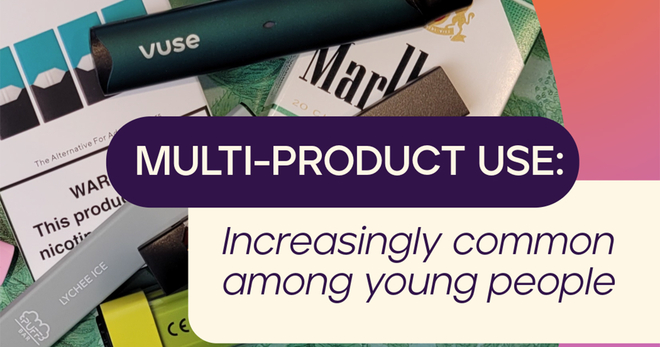How tobacco control researchers can make flavored tobacco policies equitable
Tobacco control researchers should consider equity throughout the policymaking process to ensure flavored tobacco policies are as effective as possible and reduce health disparities, according to a Truth Initiative and University of Kentucky Markey Cancer Center commentary in Preventive Medicine.
It is well established that flavors play a significant role in enticing youth and young adults to try and use tobacco products. In addition to attracting young people with flavored tobacco products, companies have used the products to target several populations that have been socially marginalized. Policies eliminating flavored tobacco sales have the potential to diminish tobacco harms among those populations and protect young people from youth appealing flavored tobacco products.
But, if flavored tobacco policies are created without a focus on equity, socially disadvantaged populations may not benefit from them. The authors call for tobacco control researchers to prevent communities from being left behind, by implementing action-oriented, equity-focused strategies at each stage of the policymaking process.
Making equitable flavored tobacco policies
The commonly accepted stages of the policy process are agenda-setting, policy formulation, adoption, implementation, and evaluation. To create flavored tobacco policies that will maximally benefit communities most burdened by flavored tobacco, tobacco control researchers should collaborate with members of those communities and perform surveillance and data collection with them. Tobacco control researchers should also help decision makers realize the equity implications of their decisions.
Once a flavored tobacco restriction is implemented, tobacco control researchers should conduct surveillance to look for any inequitable effects. They should even track localities where the tobacco industry has blocked flavored tobacco policies or policymaking for flavored tobacco policies have yet to begin, to identify whether the policy gap is increasing disparities.
“[Ensuring that flavored tobacco policies are viewed through an equity lens] moving forward, provides the promise of improving population health broadly, while also reducing harms for those disparately burdened by use of flavored products,” the authors write.
More in emerging tobacco products
Want support quitting? Join EX Program
By clicking JOIN, you agree to the Terms, Text Message Terms and Privacy Policy.
Msg&Data rates may apply; msgs are automated.


